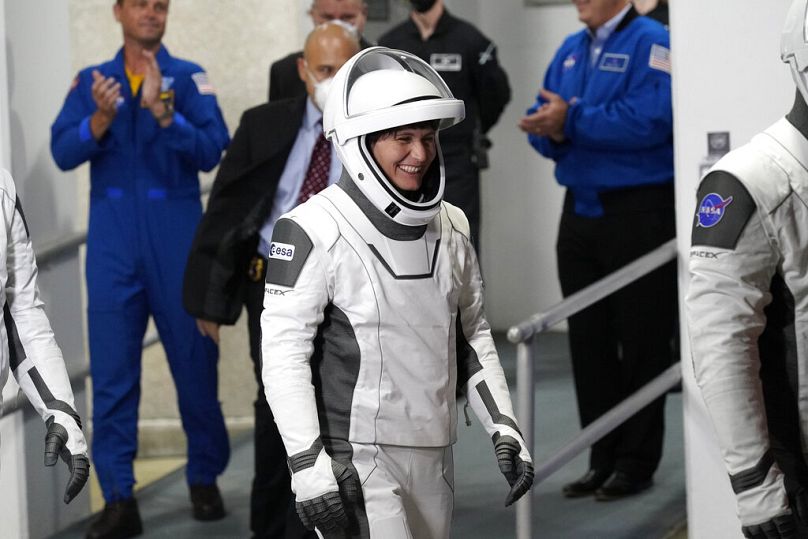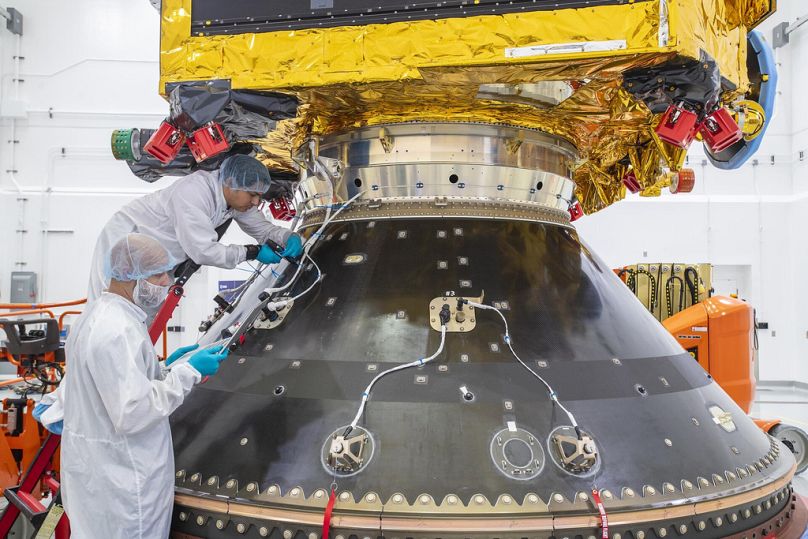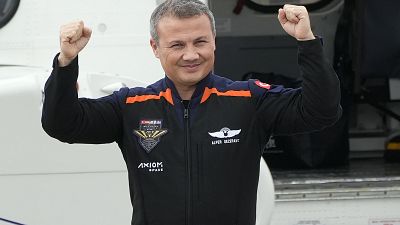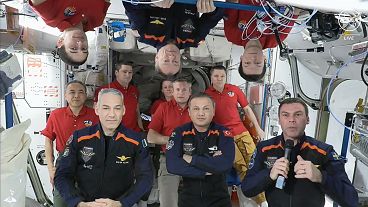European spending on space lags behind that of the US and China. If it is to be a major player in the space area, and even simply have the technology to protect itself, a more sweeping, continent-wide approach is required, Jean-Francois Morizur writes.
Josef Aschbacher, the director-general of the European Space Agency (ESA), recently said that Europe needed deeper cooperation in space if the continent was to counter its rivals, including Russia and China.
In an interview for a major international outlet, he noted that in many space sectors, Europe is highly competent, even a world leader. But in security and defence, in particular, it lacked a "unified capability".
In recent history, European governments have resisted pooling resources for weapons production because of anxiety about sovereign control.
This is understandable. Europe is a continent, not a country, and one with a history of internecine conflict that’s still fresh in the memory.
But the reality is that this policy has stunted the efficiency and scale of production across the continent, which has been to the detriment of all its constituent countries.
The funding gap
In funding defence technology, Europe is lagging behind its rivals. European spending on space, both by national governments and the private sector, lags behind that of the US and China, the world’s main space superpowers.
The budget for the 22-country ESA this year is €7.8 billion – less than a third of NASA’s $27.2bn (€25.2bn).
Defence technology, it goes without saying, does not create itself. Companies need money to develop the technology in the first place, but more importantly, they need money to scale.
The climate technology sector provides a useful parallel here. As a recent McKinsey report noted, we have the technology (much of it space technology) needed to solve the climate challenge; the problem is bringing emerging tech to scale, which costs money. In defence, the situation is similar.
The technology exists. European countries are leaders in countless areas, from Earth observation to photonics. But the money is lacking.
Outdated ESG criteria are the issue
But why is it lacking? One reason is that in order to attract private investment, defence technology companies need to satisfy environmental, social and governance (ESG) criteria.
But those criteria were put in place at a time of relative peace. Governments across the board were looking to reduce defence spending, not increase it, and defence investment, in general, seemed almost like a relic of the past, to be phased out, rather than increased for the purposes of shoring up national sovereignty and protecting democracy.
Defence technology companies in Europe now find themselves in a bind. Simply because of the nature of what they make, many of them can’t meet investors’ ESG criteria, no matter what they do, and so are ineligible for investment.
Indeed, the investment environment is so restrictive that even respected defence businesses like 4GD, set up by former Royal Marines, have had to turn to capital markets in the US for investment.
The principle of geographic return
A further barrier, which is arguably more difficult to overcome, is presented at the supranational level.
The ESA, which includes some non-European Union states, including Norway, Switzerland and the UK, acts as the development and procurement agency for EU projects, such as the Earth-monitoring programme Copernicus and the Galileo navigation satellite system.
But it operates according to the principle of "geographic return", according to which ESA must return a similar amount of money to that invested in it by a given country in the form of industrial contracts. In other words, if the UK gives ESA £1, it will receive £1 in industrial contacts.
This harms competition. Rather than allow companies across the 22 countries to compete to land lucrative contracts, ESA effectively freezes out those companies that are not based in the right territories, even if those companies are the best candidates to produce a certain product – one that could be vital for the continent’s defence.
Competition is a vital part of the healthy functioning of a market. It brings prices down and quality up. Companies burn off inefficiencies in their drive to succeed.
The good news is that ESA has shown a willingness to relax the policy of geographic return. Last year, Aschbacher proposed "a competition between innovative European companies" to build a ship that would take cargo to the International Space Station by 2028, and then bring it back to Earth.
His comments are further proof that the continent’s space agency understands the need for reform.
But if Europe is to be a major player in the space area, and even simply have the technology to protect itself, a more sweeping, continent-wide approach is required.
The conflicts underway around the world remind us of the necessity for a strong, high-tech, military offering. By pooling its resources and its talent, Europe can make sure that’s what it has.
Jean-Francois Morizur is Founder and CEO of Cailabs.
At Euronews, we believe all views matter. Contact us at view@euronews.com to send pitches or submissions and be part of the conversation.





